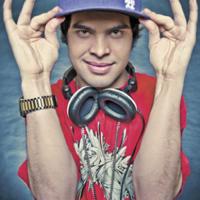Chamber Music Kelowna was in a difficult position last week when pianist Katherine Chi canceled her concert on Friday night due to illness.
Just 48 hours in advance, Yael Weiss flew from New York to play an interesting program for an almost full house at the Rotary Center for the Arts.
The evening included Chopin’s Barcarole and two Beethoven sonatas, each paired with a contemporary prelude.
Weiss had a real way of interacting with the audience for a few minutes before each piece and giving some thoughts on what was to come. She did so warmly but succinctly, and I appreciated a program that was so illuminated, but not half an hour longer than it should, based on chats.
In the description of the barcarole, she described a conversation between two people in a Venetian gondola, which begins harmoniously, becomes a little more complicated and ends happily resolved. She brought this to life on the keyboard, and I admired the fluidity of her tone and phrasing, as well as her depth and variety of colors through the soft end of the dynamic spectrum.
Although the game was well temporary and constructed, I felt that the range of expression was limited or muted at times, and that more variety from the forte-fortissimo area would only encourage their ability to capture the whole character and conversation of this work.
Next up was Prelude to a Sonata by Joel Feigin, a short work that is described as full of bright, spring-like colors and mimicking the style of Beethoven’s pastoral sonata that was to follow on the program.
I could hear bird calls and other spring sounds on an abstract level, and there were clear motivic and tonal references to Beethoven’s sonata, but I have to admit that I wasn’t entirely convinced of the pairing or of how Beethoven came into being after this contemporary prelude.
Weiss showed her skill and ease in pastoral work when a light, classical sound was created. It effectively captured the mood and burgeoning energy of the first movement, albeit sometimes through an over-kicked sound.
In the second movement, Weiss revealed that it had a bigger, more spontaneous sound and contrasted it with a beautiful, mellow vocal tone, and the same variety of mellow playing that I enjoyed in the Chopin was evident again. The scherzo and trio had a playfulness and variety of characters that really brought it to life.
In the fourth movement, Rondo, I had the same complaint as I had about Chopin; the dynamic range felt limited and I really wanted to hear more excitement and dedication through the coda.
I can appreciate fine musicality and subtle playing when I hear it. Sometimes I wish it was a little exaggerated, if only for a few sentences.
The second half began with Ludwig’s Nightmare, composed by Lera Aurbach. This was performed as a prelude to Beethoven’s famous Appassionata sonata, and the dark, brooding connection between the two was clear. This work built up large amounts of sound, and Weiss previously spoke of Beethoven’s constant struggle for louder, more sonorous pianos, perhaps because of his musical ideas, perhaps because of his deteriorating hearing and ultimately his deafness.
It should also sound like something was wrong, and it was. I found this pairing worked more effectively than the two from the first half as the appassionata seemed a bit natural despite the stark contrast in style and sound. I felt that the first movement was the best game up to this point, and during this sizeable and demanding work, I admired Weiss’ patient and leisurely approach.
She shows a fine musical craft that shapes the entire work with ease and clarity; the first movement gave way to a calm, satisfied, almost dream-like second movement, before storm and tragedy return in the third movement.
The audience left satisfied after a well-deserved encore, and it was clear throughout the evening that Weiss is an accomplished musician with impeccable technique and an effortless approach. While I would have asked more of her here and there, she was a fitting replacement for Katherine Chi. Putting it all together and flying across the continent in two days in advance made it all the more impressive.
Graham Vink can look back on 30 years of keyboard experience. After his BMus and MMus in Calgary and Toronto, Graham returned to the Okanagan, where he can now be heard as a soloist, accompanist and collaborator.










